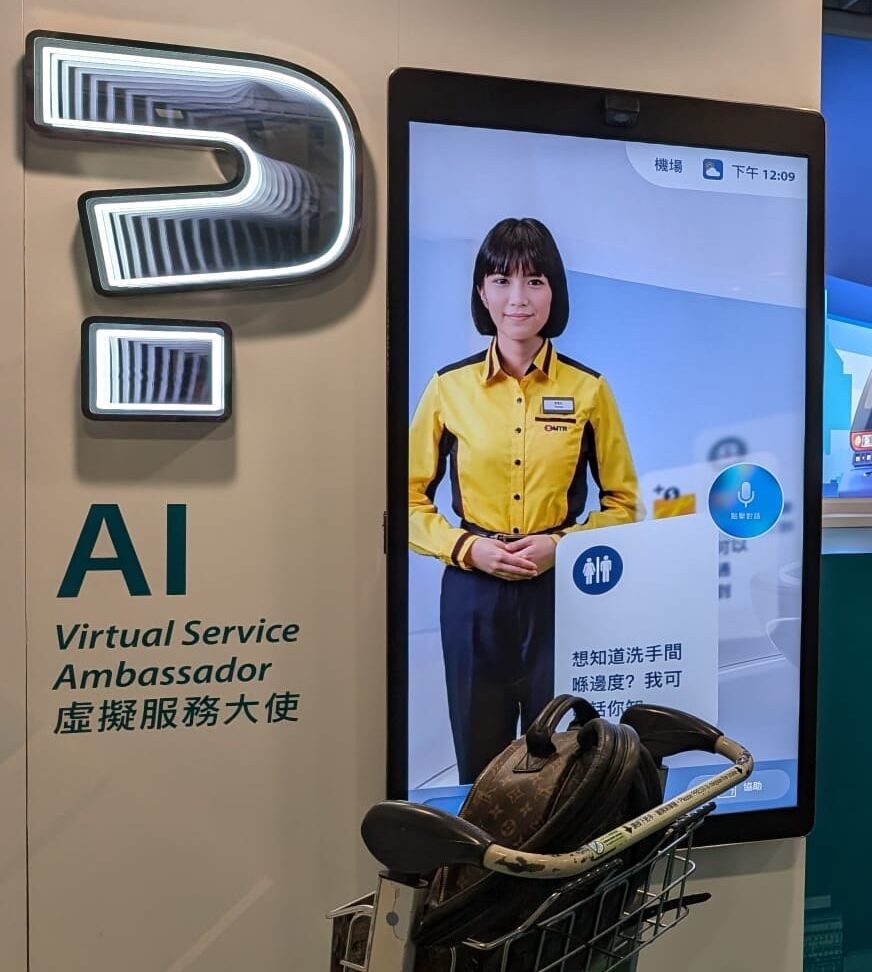Home » Newsroom Posts » The Future of Unified Communications: Emerging Trends and Innovations in 2025

March 12, 2025 | By Shirmattie Seenarine
TL;DR: Unified Communications (UC) is at the forefront of business transformation, leveraging AI, cloud technology, and private networks to revolutionize communication. In 2025, AI-powered live phone translations will break language barriers, AI-driven voice bots will enhance customer interactions, and private LTE/5G networks will secure uninterrupted communication. Businesses will increasingly adopt UCaaS for scalability and cost efficiency, while security remains paramount in protecting data. Companies that embrace these innovations will gain a competitive edge. Future-proof your business by discovering what you need to know.
Unified Communications (UC) is leading enterprise reinvention, transforming how businesses communicate and interact, improving customer engagement, and enhancing efficiency and productivity. In moving to 2025, companies are seeing rapid developments in artificial intelligence (AI), cloud technology, and private networks that are redefining how businesses communicate. Organizations are no longer just implementing UC solutions; they are now counting on them to overcome language barriers, simplify remote work, and enhance security. With voice AI translators narrowing the language barrier to intelligent voice bots that provide 24/7 customer support, UC technology is becoming more intelligent, adaptive, and essential. Moreover, the shift towards private LTE and 5G networks will guarantee secure and uninterrupted communication, especially in industries where reliability is paramount. As businesses continue to operate within this ever-changing realm, adopting next-gen solutions will be essential for survival, efficiency, and future readiness.
AI continues transforming unified communications by making interactions more intelligent, adaptable, and personalized. As a result, businesses continue to research and adopt the best AI tools that enhance communication and improve customer experience.
If you are like many others, you’ve experienced multilingual barriers in diverse communities like the workplace or international business settings. Unfortunately, language barriers are a common experience, which is not surprising since office workers spend 42% of their time collaborating with others. Language barriers equate to missed information, misinterpretations, weakened collaboration, and disengagement.
Now, imagine a world without multilingual obstacles. AI-powered live phone translations make it possible by providing near-instantaneous translations that retain the speaker’s voice and tone. Don’t expect the AI voice translations to sound robotic and unauthentic. Instead, they feel genuine and believable because they preserve the speaker’s voice and tone.
While many companies are familiar with or using traditional voice-to-text translators like Google Translate or Microsoft Translator expect to see rapid adoption of AI live phone translators signaling a fundamental shift in how companies work and communicate. Just think, a recruiter in the United States can interview candidates in Brazil with both parties speaking in their native languages. The recruiter hears the candidate’s answers in English while the candidate hears the interview questions in Portuguese. The example provides a compelling depiction of how UC revolutionizes communication and collaboration by integrating AI. It also shows how AI-powered live phone translations can expedite the hiring process, eliminating the need for a third-party interpreter who can be costly and often difficult to find in last-minute situations.
Companies like Deltapath offer real-time AI-powered phone translator solutions that can translate over 80 languages. The company will introduce real-time translations to video calls later this year. During a video call, each person sees the other person’s lips move naturally, timed with the native language the recipient hears.
An AI live phone translator is not an innovation that is just “nice” to have; it is fast becoming indispensable. When envisioning it on a grand scale, AI live phone translation is easily a vessel for globalization, enabling people who speak different languages to communicate effortlessly. This can only help companies tap into new markets and expand their consumer base. Creating a strong foothold in foreign markets can be a key differentiator for companies.
As the year continues, voice AI bots are displacing more Interactive Voice Response (IVR) systems that follow pre-defined scripts. Unlike IVRs, AI-driven voice bots, which are also often referred to as agentic bots or AI customer service assistants, offer real-time, natural, and dynamic conversational interactions with customers that improve as the model gains more data from every interaction. As a result, AI voice bots continuously procure knowledge to remain relevant and indispensable to companies. Aside from mimicking human dialogue, AI voice bots can handle complex queries, only escalating calls to human agents when necessary.
 Customer Service Strategy
Customer Service StrategyCompanies weighing in on their 2025 customer service strategy should consider a voice AI bot. AI voice bots offer round-the-clock support seven days a week, significantly boosting customer support and business operations. Unsurprisingly, 64% of businesses feel confident AI will increase productivity. Companies short on human agents can deploy voice AI bots in their call centers. Alternately, companies who have enough resources but want their human agents dedicated to building customer relationships and sales can use AI voice bots for onboarding, lead generation, and routine inquiries.
For companies with a CRM solution, voice AI bots can integrate with CRMs to provide personalized support and tailored recommendations based on a customer’s account data. Like voice AI translators, AI voice bots also embrace globalization by offering multilingual support.
For companies focused on improving convenience and efficiency, AI voice bots offer customers a frictionless experience where they can access information quickly and perform tasks independently. Deltapath’s voice AI bot is used in public kiosks in Hong Kong’s transportation sector, bringing customer support directly to the customer. Anyone can walk up to a kiosk and ask where the restrooms are. Where is the lost and found? What line should I take to get to the airport? When the voice bot cannot answer a passenger’s question, it connects the passenger to a human agent at a call center over a live video call. Kiosks integrated with AI voice bots can be helpful at airports, train stations, hotels, and retail stores to drive up customer support and customer experience.
When using a public network, data is susceptible to interception. In addition, public Wi-Fi relies on shared bandwidth and is subject to congestion and interference; these can degrade performance. These issues are having more companies prioritizing private LTE and 5G networks. In addition, a private communication network can have better guarantees on bandwidth and security. As a result, industries like healthcare where secure, real-time communication is needed, have started moving to private cellular networks. To understand the use and benefit of a private network, consider a UC communication hub installed in a fire truck. This fire truck can emit a 5G signals that allows firefighters and other first responders in the area to connect, ensuring dependable, private, and uninterrupted communication at an emergency site using push-to-talk and conference calls that are made possible by communication apps. Places without cellular coverage are no longer an issue for emergency crews.
Private networks offer significant advantages in various industries beyond healthcare and emergency services. Consider manufacturing and industrial IoT (Internet of Things) factories. Public networks would struggle with the substantial number of connected devices in these factories. Plus, with these factories dabbling in new technologies, a private network prioritizes security and prevents data leaks. Finally, these factories often have automated production lines, robotics, and AI-powered technologies requiring high bandwidth and ultra-low latency. Two companies, Bosch and Siemens, have been using private 5G in their factories for years. Private networks are expected to spread into every industry, from Energy and Utilities to Smart Cities and Public Infrastructure.

Unified communications and Unified Communications as a Service (UCaaS) are not new buzz words. But UCaaS has risen to the top of the heap as the solution of choice for organizations wanting the ability to scale fast, the cost-effectiveness of a cloud service, and the opportunity to integrate all their communications together. By 2028, the global UCaaS market is projected to reach over $69 billion.
Traditional unified communications systems require a significant upfront investment in on-premises infrastructure, which may include servers, networking hardware, and IT personnel. This is in addition to the costs of ongoing maintenance and system upgrades. Furthermore, traditional unified communications solutions do not easily support remote or hybrid work environments. In contrast, a Unified Communications as a Service solution is cloud-based, which means businesses do not need to invest in expensive hardware. Instead, companies can scale their communication needs up or down on demand, paying only for what they use with a UCaaS solution. Robust UCaaS platforms can also manage maintenance, security updates, and system enhancements—reducing the burden on IT teams and allowing organizations to focus on growth.
As businesses continue investing in unified communications in 2025, security must be a top priority to protect sensitive data and ensure seamless operations. With the rise of hybrid work environments, cloud-based UCaaS solutions, and AI-powered collaboration tools, organizations must adopt advanced encryption protocols, such as Secure Real-time Transport Protocol (SRTP) and Zimmermann Real-Time Transport Protocol (ZRTP) to protect voice, video, and messaging communications from interception. Multi-factor authentication (MFA) should be a standard security measure to prevent unauthorized access, as cybercriminals increasingly target remote and mobile workers. With AI’s increasing popularity and ability to be utilized in almost everything, companies should consider investing in AI-powered threat detection solutions that proactively identify and respond to cyber threats. Two companies offering this solution are Vectra AI and Deep Instinct. Businesses adopting proactive security strategies will fortify their communication networks and gain a competitive edge by ensuring dependable, uninterrupted, and secure collaboration.
This year will bring AI-driven UC advancements, including real-time telephone translation and AI voice bots, which are critical for businesses in dissolving language barriers, improving customer service, and facilitating global collaboration. Also, expect a significant increase in the transition to private communication networks as companies seek to enhance security and provide more reliable services, especially in industries that require real-time communications. The adoption of Unified Communications as a Service solution will grow as businesses seek cost-effective and scalable options supporting remote and hybrid work models. Companies serious about success must improve security to protect their communications due to increased cyber threats. Companies that successfully implement these innovations will have a competitive advantage. Contact Deltapath to discuss UCaaS, artificial intelligence, and private communication networks.